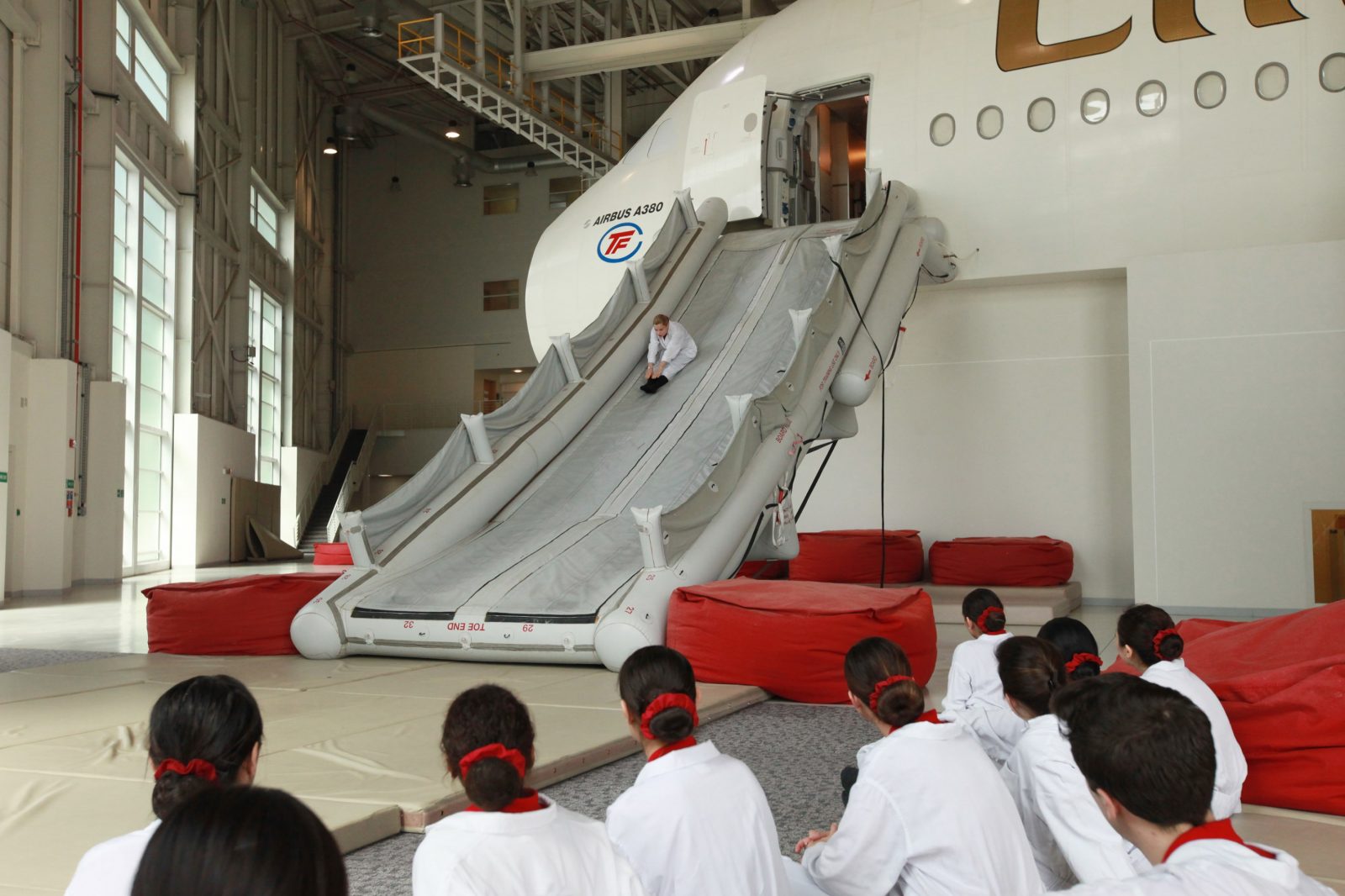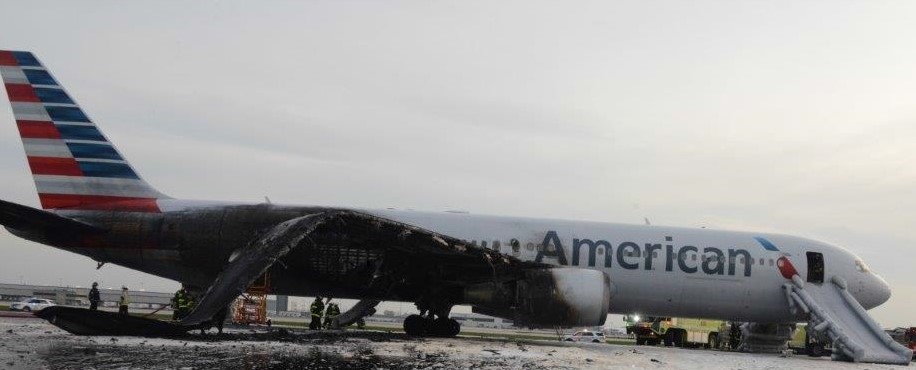
All modern commercial aeroplanes are designed to be evacuated in under 90 seconds. The current rules have been in place since the 1970s and aircraft manufacturers like Boeing and Airbus have to prove they can get a full load of passengers off one of their planes in a test environment – they can only use half the exits, the cabin has to be darkness and debris is scattered across the floor.
One of the last commercial aircraft to go through this tough certification process was the double-deck Airbus A380. Here’s what an emergency evacuation using inflatable slides in meant to look like…
Unfortunately, in the real world, we know that the vast majority of emergency evacuations don’t look like this. What was missing in the above test, of course, was every other passenger stopping to retrieve their hand luggage and blocking the emergency exits as they struggle with their rollaboards.
Safety experts have warned of the dangers for years yet regulators have been hesitant to take action. Sunday’s crash landing of an Aeroflot Sukhoi Superjet 100-95, however, has restarted the debate and it can’t come a moment too soon. 41 of the 74 passengers and crew onboard Aeroflot flight SU1492 perished in the devastating fire that consumed the rear of the aircraft.

It’s hard to believe that more lives couldn’t have been saved if some passengers hadn’t stopped to retrieve their luggage from the overhead bins. We may never actually know for certain but it’s a very real possibility that some of the 33 survivors hampered the emergency evacuation. It’s a hard thing to say but just maybe, they are culpable for the deaths of their seatmates.
That’s certainly the view of Eric Reed, an Airbus Captain for a major U.S. airline. He has started a Change.org petition calling on the Federal Aviation Administration (FAA) to make “it a federal crime for retrieving ANY personal belongings during an unplanned emergency evacuation.” The petition also calls on regulators to “immediately look into electronically locking overhead bins.”
It might sound like a whacky idea but it’s a proposal that is backed by eminent aviation safety experts.
Here’s what Captain Reed has to say about the incident:
Following the tragic May 5, 2019 Aeroflot crash, it’s become immediately apparent that U.S. evacuation regulations are not sufficient in their current form. Flight Attendant Maxim Moiseev and 40 other passengers lost their lives due to a fire that consumed the aircraft immediately after landing. All of the passengers and flight crew that burned alive were in the aft section of the aircraft. Numerous passengers, including a “passenger of size,” blocked the aisle causing a substantial delay while they stopped to retrieve their backpacks and carry-on bags from the overhead bins. This was undoubtedly solely responsible for countless unnecessary agonizing deaths.
Over 5,000 people have already signed the petition. You too can add your name here.
The FAA has already been ordered to carry out a study on emergency evacuations following the passing of the FAA Reauthorization Act last year but the agency has so far failed to take any action. If any good comes of the Aeroflot tragedy, the FAA will, at last, get a move on and start this study.
Like every other flight attendant, the behaviour of passengers in emergency evacuations alarms me. There is nothing, absolutely nothing so important in your hand luggage that trumps a human life. So you have medication? It can be replaced. A captain or flight attendant does not initiate an evacuation on a whim – it will only happen if your life is at very real risk. Follow the instructions of crew and don’t waste a single second. You have only one thing to do – GET OFF THE PLANE!
As for the regulators – stop pandering to the commercial interests of airlines and aircraft manufacturers. Did you know that modern planes like the Boeing 787 Dreamliner and the re-engined Airbus A321neo with vastly different emergency exits haven’t even gone through real-life emergency evacuation simulations?
Instead, regulators have been happy to certify these planes based on computer modelling. We don’t even know how shrinking seat pitch might effect an evacuation. If this concerns you, sign the petition!
Mateusz Maszczynski honed his skills as an international flight attendant at the most prominent airline in the Middle East and has been flying ever since... most recently for a well known European airline. Matt is passionate about the aviation industry and has become an expert in passenger experience and human-centric stories. Always keeping an ear close to the ground, Matt's industry insights, analysis and news coverage is frequently relied upon by some of the biggest names in journalism.







